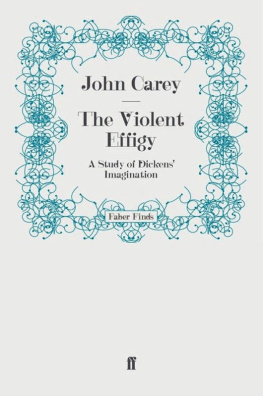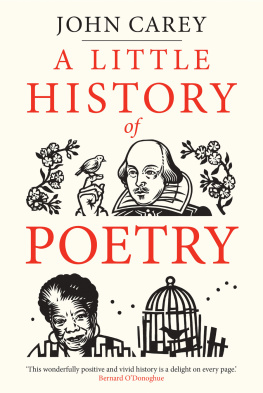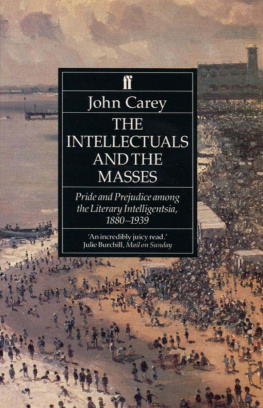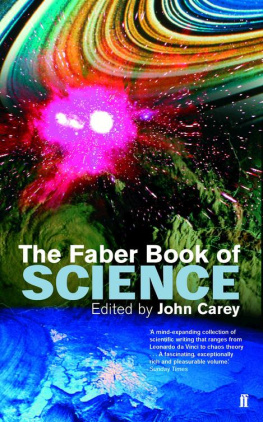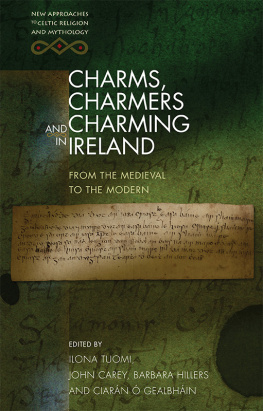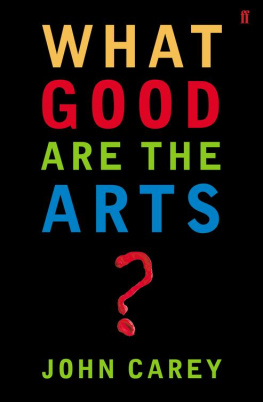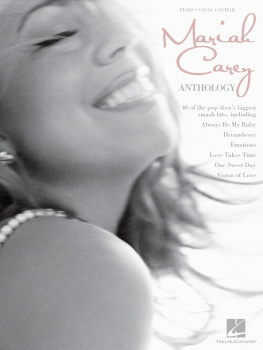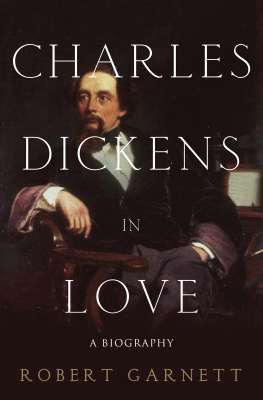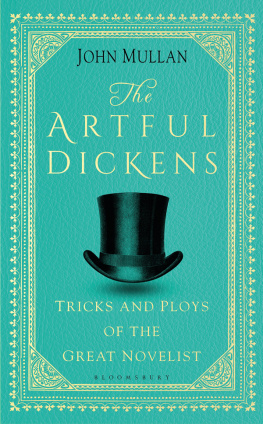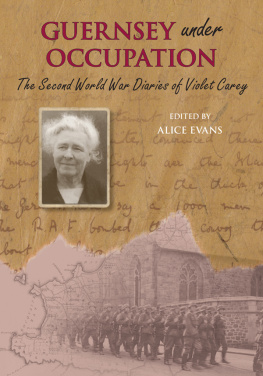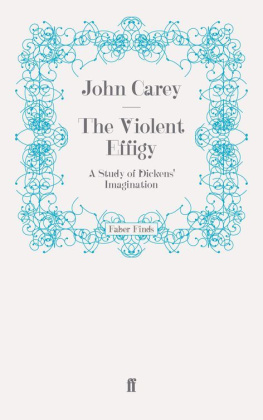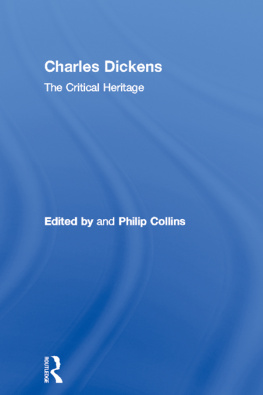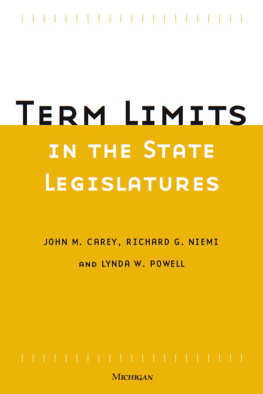John Carey - The Violent Effigy- A Study of Dickens Imagination
Here you can read online John Carey - The Violent Effigy- A Study of Dickens Imagination full text of the book (entire story) in english for free. Download pdf and epub, get meaning, cover and reviews about this ebook. year: 1973, publisher: London : Faber and Faber, genre: Detective and thriller. Description of the work, (preface) as well as reviews are available. Best literature library LitArk.com created for fans of good reading and offers a wide selection of genres:
Romance novel
Science fiction
Adventure
Detective
Science
History
Home and family
Prose
Art
Politics
Computer
Non-fiction
Religion
Business
Children
Humor
Choose a favorite category and find really read worthwhile books. Enjoy immersion in the world of imagination, feel the emotions of the characters or learn something new for yourself, make an fascinating discovery.
- Book:The Violent Effigy- A Study of Dickens Imagination
- Author:
- Publisher:London : Faber and Faber
- Genre:
- Year:1973
- Rating:4 / 5
- Favourites:Add to favourites
- Your mark:
- 80
- 1
- 2
- 3
- 4
- 5
The Violent Effigy- A Study of Dickens Imagination: summary, description and annotation
We offer to read an annotation, description, summary or preface (depends on what the author of the book "The Violent Effigy- A Study of Dickens Imagination" wrote himself). If you haven't found the necessary information about the book — write in the comments, we will try to find it.
The Violent Effigy- A Study of Dickens Imagination — read online for free the complete book (whole text) full work
Below is the text of the book, divided by pages. System saving the place of the last page read, allows you to conveniently read the book "The Violent Effigy- A Study of Dickens Imagination" online for free, without having to search again every time where you left off. Put a bookmark, and you can go to the page where you finished reading at any time.
Font size:
Interval:
Bookmark:







INTRODUCTION
Dickens is infinitely greater than his critics. The point needs stressing because critics can, with unusual ease, appear intelligent at his expense. Shortcomings, ultimately irrelevant, in his own intelligence account for this, plus the presence of worthless elements in even his best novels. What makes him unique is the power of his imagination and, in Kafka's phrase, its 'great, careless prodigality' -careless, because extending itself typically into odd angles and side-alleys of his subject. To take a single example, when Mrs. Jarley's caravan rolls into town one sultry afternoon, Dickens' narration passes swiftly over houses, inns and bystanders and lights on some insects: 'the flies, drunk with moist sugar in the grocer's shop, forgot their wings and briskness, and baked to death in dusty corners of the window.' Festive and forlorn in rapid succession, they are very Dickensian flies, and it took Dickens to notice them at all.
The second fact to bear in mind is that Dickens is essentially a comic writer. The urge to conceal this, noticeable in some recent studies, can probably be traced to a suspicion that comedy, compared to tragedy, is light. Comedy is felt to be artificial and escapist; tragedy, toughly real. The opposite view seems more accurate. Tragedy is tender to man's dignity and self-importance, and preserves the illusion that he is a noble CTeature. Comedy uncovers the absurd truth, which is why people are so afraid of being laughed at in real life. As we shall see, once Dickens starts laughing nothing is safe, from Christianity to dead babies. His instinctive response to tragic pretensions may be gauged from an early letter, in which he announces that he has just moved into a hotel room previously occupied by the celebrated actor Charles Kean:
I am sitting at this instant in his wery chair!!! I was bursting into the water-closet this morning, when a man's voice (of tragic quality) cried out - 'There is somebody here.' It was his. I shall reserve this for his Biographer.
Humankind's attempts to surround its puny concerns with gravity and decorum seemed to Dickens hilarious. Contemplating them he was overcome, he confessed, by that 'perverse and unaccountable feeling which causes a heart-broken man at a dear friend's funeral to see something irresistibly comical in a red-nosed or one-eyed undertaker'. Institutions and organizations and the structure of government upon which civilized society depends provoked him to scornful merriment. Yet the effect of his mirth is curiously not sardonic. His investigation of fools and hypocrites radiates enjoyment. His comic figures claim our affection. The laughter, though devastating, revels in what it exposes. It is this crucial aspect of his genius that is omitted by moralistic critics who see in Quilp only 'a study in sadistic malice' (the phrase is from Dr. and Mrs. Leavis' Dickens the Novelist), or in the portrayal of Fagin only 'horror at the corruption of innocence'.
Dickens' inability to take institutions seriously is one reason for believing that we shall miss his real greatness if we persist in regarding him primarily as a critic of society. There are other reasons, too. As has often been remarked, he warmly favoured the hanging of disaffected natives in Jamaica and the blowing of mutinous sepoys from the mouths of cannon. In America he regretted the 'melancholy absurdity' of giving blacks the vote, and objected besides that 'exhalations not the most agreeable arise from a number of coloured people got together.' These traces of prejudice, though venial when placed in their historical perspective, are not encouraging if one wishes to recommend Dickens for his enlightened social views. A more serious drawback, in this respect, is his inconsistency. He reflects the popular mind in that he is able to espouse diametrically opposed opinions with almost equal vehemence. He urges compassion for the occupants of prison cells, yet feels outraged when convicts are given better accommodation than impoverished working men. In the History of England he wrote for his children he includes a lecture on the wickedness of warfare which, he insists, can never be 'otherwise than horrible'. But when he recounts the havoc King Richard wrought among the Saracens 'with twenty English pounds of English steel', or celebrates the exploits of 'bold Admiral Blake' who 'brought the King of Portugal to his senses', it appears that the horrible side of war has somehow slipped out of sight. 'He was very much a man of one idea,' affirmed his friend John Forster, 'each having its turn of absolute predomi
nance.' Almost any aberration, indeed, from drunkenness to wife-beating can be found eliciting at various times both Dickens' mournfulness and his amused toleration. It is noticeable, too, that though he customarily laments the inadequacy of the successive systems of Poor Relief, he congratulates those who would never deign to accept it. In Our Mutual Friend persons seeking public charity are likened to 'vermin', while old Betty Higden, fleeing it, remains a 'decent person'. By encouraging this distinction Dickens could hardly ease the lot of the destitute, yet consideration for the destitute was commonly his cry. It seems clear that in reality he believed in 'independent self-reliance' just as firmly as Lord Deci-mus Tite Barnacle, yet Lord Decimus is ridiculed for adhering to that belief in Little Dorr it. It has caused some surprise, too, considering the picture of industrialism presented in Hard Times, that Dickens should have paid tribute at a public banquet the year before the novel appeared to:
the great compact phalanx of the people, by whose industry, perseverance, and intelligence, and their result in money-wealth such places as Birmingham, and many others like it, have arisen.
These inconsistencies, and they are widespread, would be damaging if Dickens were prized as a social theorist. But they are symptomatic of a flexibility which, if he is regarded as an imaginative writer, becomes vital. It is this that impels him to see his dominant objects and landscapes - his locks and cages and crumbling mansions, his effigies and corpses and amputated limbs - in sharply contrasting lights. Precisely relevant here is Keats' argument about the poetic character: that it is essentially amoral and unprincipled: 'It has as much delight in conceiving an Iago as an Imogen.' Dickens, though more apologetically, recognized in himself the same bond between imagination and inconsistency: 'the wayward and unsettled feeling which is part (I suppose) of the tenure on which one holds an imaginative life'.
Regarding Dickens as an imaginative writer does not entail marking down his work as a sort of fanciful vacation from 'real' experience. That might, admittedly, be the case if we were to accept the pronouncements about literature and reality offered in Mr. Robert Garis' influential study The Dickens Theatre. Mr. Garis regrets, in the first place, Dickens' tendency to 'show off* his style'. It strikes him as an offence against 'good taste and good manners* t
Font size:
Interval:
Bookmark:
Similar books «The Violent Effigy- A Study of Dickens Imagination»
Look at similar books to The Violent Effigy- A Study of Dickens Imagination. We have selected literature similar in name and meaning in the hope of providing readers with more options to find new, interesting, not yet read works.
Discussion, reviews of the book The Violent Effigy- A Study of Dickens Imagination and just readers' own opinions. Leave your comments, write what you think about the work, its meaning or the main characters. Specify what exactly you liked and what you didn't like, and why you think so.

